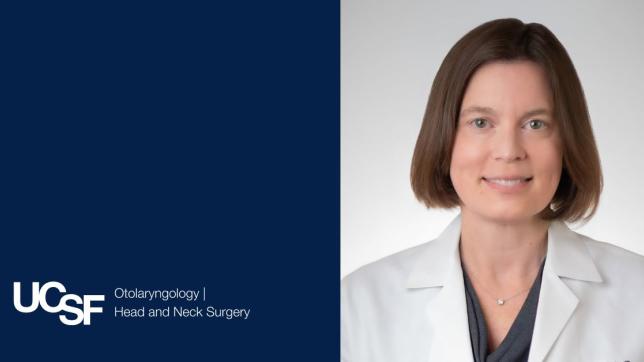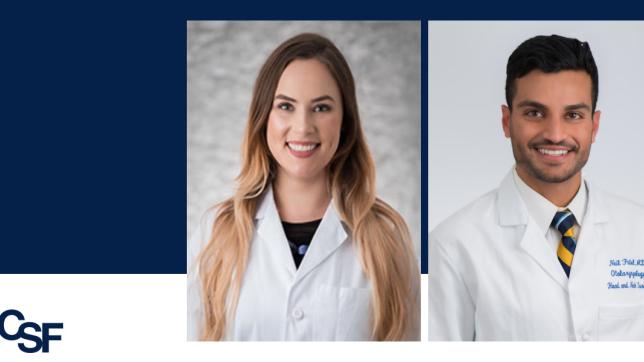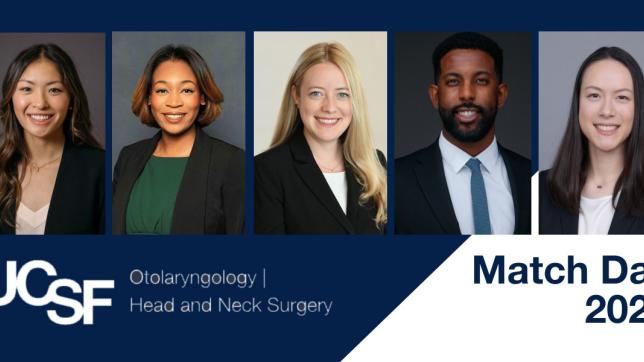During National Mentorship Month, we're excited to highlight one of the many impactful mentors on our faculty — Jennifer Grandis, MD, a professor here at the Department of Otolaryngology – Head and Neck Surgery at the University of California, San Francisco (UCSF OHNS).
"Mentors see us for who we are and help us be the best versions of ourselves," says Dr. Grandis. "My mentors have done this for me, and I hope that my life experiences have enabled me to serve such a role for my mentees."
Dr. Grandis shared her insights on mentorship in academic medicine. Read the conversation below!
Who do you mentor?
Dr. Grandis: "I mentor trainees, including undergraduates, medical and graduate students, those aspiring to be medical/graduate students, residents, fellows, etc. As a senior faculty member, I also serve as a mentor to junior faculty, which I also enjoy immensely. Peer mentoring was not a named concept for most of my career, but I have grown to value the opportunity to both mentor colleagues and be mentored by them."
Why is being a mentor important to you?
Dr. Grandis: "Being a mentor means understanding where the other person (the mentee) is coming from. This can mean putting aside my own experiences and personal expectations, which are often irrelevant in the context of another person's skill set and aspirations. As a physician, I take care of patients. As a mentor, I take care of my professional family. It is important to me to be a valued member of my community."
What is your mentorship style?
Dr. Grandis: "Just before I left [the University of Pittsburgh School of Medicine] to come to UCSF, I received the mentorship award from the MD/PhD students. What stuck with me the most was when my student described that, rather than having one style of mentorship, I customized my approach to my mentees so that each person got what they needed most. I love taking walks and talking with people and most UCSF campuses are surrounded by great places to walk. I hope I give off the vibe that I am accessible and responsive to requests for guidance."
Why is mentorship valuable in medicine?
Dr. Grandis: "Even when there are overt rules to follow, the complex professional networks of academic medicine can be obtuse and challenging in completely unexpected ways. Mentors are guides, sometimes even prophets. One also needs mentors in academic medicine for advancement — people who can be relied on for supportive recommendations."
How can mentorship help UCSF's mission of diversity, equity and inclusion?
Dr. Grandis: "Diverse trainees deserve diverse mentors, underscoring the importance of identifying, nurturing and recruiting those from backgrounds different from our own. Mentees teach mentors, too, so there are extraordinary opportunities to learn from people who have lived different lives. In my qualitative research study on the role of gender in academic medicine, one of our publications focused on mentorship. We found that:
- Women (but not men) reported being sexually harassed by mentors
- Both women and men became aware of gender inequities in academic medicine through relationships with women mentors and mentees
- Both women and men mentors recognized the challenges their women mentees faced and made deliberate efforts to help them navigate an inequitable environment
- Both women and men mentors modeled work-family balance and created family-friendly environments for their mentees."
Who are your mentors?
Dr. Grandis: "I have been so lucky to have collected a suite of mentors over the arc of my career who have guided me. Some became a mentor by virtue of their leadership position when I was a member of their domain. Others sought me out or responded favorably when I approached them for advice. The times I have stumbled or had to navigate challenging situations at work have shown me the value of dedicated mentorship."
We encourage all members of the academic medicine community to take a moment this month to show your appreciation for the mentors in your life. We want to thank Dr. Grandis and the other mentors at UCSF OHNS for the time and effort you put into supporting members of the department through mentorship. Your impact does not go unnoticed!




